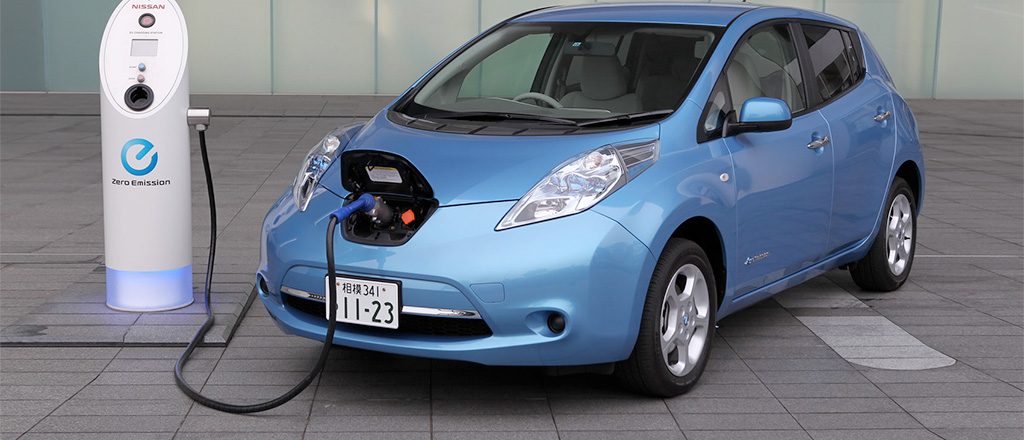Super Power, a dominant player in Pakistan’s two-wheeler industry introduced its two EV models to the market by putting them on exhibition in Karachi. At the same time, it was reported that Hyundai Motor Company and Nishat Textile Mill have recently joined hands to assemble EV cars in Pakistan. Renault, Hyundai, Toyota, Honda, and Nissan are also taking interest in starting local manufacturing.
International & Local Players are interested in Electric Vehicles Market
Pakistan already has a significant market for hybrid vehicles with Honda’s Vezel, Toyota’s Prius and Aqua, and other models seen on the roads. Leading manufacturers in the automobile industry are now introducing EV models with a wide range of prices which target consumers of diverse income groups. One such model displayed at the Super Power Motorcycles exhibition had as low price as PKR 600,000. Big members of the international automobile industry (South Korea, China and Japan) believe that Pakistan is a high potential market for EV technology, and local businesses are collaborating with them for bringing EVs in Pakistan.
The 2016 Auto Industry Development Policy (AIDP) and the launch of China-Pakistan Economic Corridor (CPEC) are encouraging foreign investments for the new automobile brands to enter Pakistani market. It will enhance competition in the automobile industry while at the same time provide a wider range of options for consumers. The heightened competition will mean competitively lower price range for customers and influx of more efficient, up-to-date engine and technology. In addition, the constant race between EV/hybrid cars with fuel powered vehicles to establish their market share will create a technology battle in the local industry which will eventually lead to the continuous introduction of not just new but better models by all brands.
The transition of Pakistan’s transport sector to EVs seems imminent. In this scenario, one may ask, what plug-in would EVs bring for a developing country that has long been fighting a severe power crisis?
It will not be a smooth ride…
On one hand, we have obvious advantages including cost-efficient fuel mileage, less maintenance requirement, reduced oil import, agreeable fuel economy and good riddance from pollution for the entire country. On the other hand, the cons include relatively low-speed limit, short range of travel on a full battery, and lack of options in the newly emerging market. It is also questionable whether Pakistan will be able to support the rising electricity demand that will, without a doubt, accompany this anticipated technology transition.
Load shedding is one of Pakistan’s most threatening problems and has had a devastating impact on the economic development for almost two decades. Electricity crisis, unending power outages and load shedding and expensive electricity units in Pakistan are some of the reasons why its market had been considered non-feasible for EVs. However, with the onset of CPEC projects in the energy sector and other national endeavors to increase Pakistan’s power generation capacity including the diversification of the energy mix are being introduced. Thus, the future of the power sector doesn’t look as devastating as one thinks so.
However, we cannot realistically expect our demand-supply gap to end overnight. Even though recent projects are expected to contribute around 11,131 MW collectively by 2018, load shedding will not end until the completion of transmission and distribution network projects that can bear this load of additionally generated power.
On the other hand, TechJuice recently reported that Mian Muhammad Mansha, a prominent Pakistani industrialist, and business tycoon, CEO of Nishat Mills believes Pakistan has a growing market for EVs and he will be investing in this particular segment. This news comes as a reassurance for consumers looking to own electric vehicles.
Pakistan needs alternate energy sources
While CPEC and other Independent Power Producer (IPP) projects are diversifying our energy mix to add renewable sources to it, it will be a good idea to involve renewables directly in the transport sector as well. This is one of the ways to ensure that the upcoming developments in the transport sector are sustainable.
Pakistan needs to start planning for charging sources EVs will use once they are launched on a wider scale. While Dewan Motors did take the initiative in this direction and installed three BMW hybrid and EV charging stations in Lahore last year which draws power from the national grid. Replicating the same kinds of charging docks all over Pakistan is going to contribute heavily to our growing electricity demand.
To lessen the anticipated burden on power generation capacity and control hiking oil import, our government must incentivise entrepreneurs to install wind and solar power-based charging stations for EVs. The South Asian region, specifically Pakistan is geo-strategically bestowed with plenty of both these natural resources.
Pakistan still has a long way to go!
Working on sustainable charging systems for EVs is one way to limit the increase in electricity demand that EVs will contribute. Research on hybrid and electric car charging systems and renewable-energy based EV charging docks is necessary to eliminate our complete dependency on fossil fuels. The government, through collaboration with Universities, should encourage and support research projects related to renewable and alternative sources of energy and introduce technology competitions. Entrepreneurs should also establish innovative businesses that tap into the rising demand for electricity. One such example could be to convert parking spaces and garages into parking plus solar charging stations. In addition, the government needs to introduce tax rebates and custom incentives for people investing in such environment-friendly green stations.
But above all, consumers need to be motivated to use renewable charging docks instead of the charge-at-home facility most EV and hybrid car models come with. In addition to awareness programs, governments and businesses will need to come up with financial incentives to attract people to travel the road of sustainability.
By addressing the need to find solutions that complement fast-approaching technology revolution, let’s hope we can sustain technological developments as they come our way.




 World’s largest plane is ready to launch
World’s largest plane is ready to launch